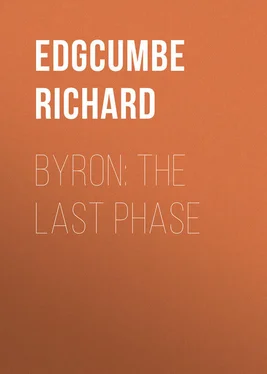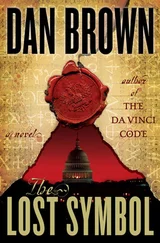Richard Edgcumbe - Byron - The Last Phase
Здесь есть возможность читать онлайн «Richard Edgcumbe - Byron - The Last Phase» — ознакомительный отрывок электронной книги совершенно бесплатно, а после прочтения отрывка купить полную версию. В некоторых случаях можно слушать аудио, скачать через торрент в формате fb2 и присутствует краткое содержание. Жанр: literature_19, Поэзия, foreign_antique, foreign_prose, foreign_poetry, Биографии и Мемуары, на английском языке. Описание произведения, (предисловие) а так же отзывы посетителей доступны на портале библиотеки ЛибКат.
- Название:Byron: The Last Phase
- Автор:
- Жанр:
- Год:неизвестен
- ISBN:нет данных
- Рейтинг книги:3 / 5. Голосов: 1
-
Избранное:Добавить в избранное
- Отзывы:
-
Ваша оценка:
- 60
- 1
- 2
- 3
- 4
- 5
Byron: The Last Phase: краткое содержание, описание и аннотация
Предлагаем к чтению аннотацию, описание, краткое содержание или предисловие (зависит от того, что написал сам автор книги «Byron: The Last Phase»). Если вы не нашли необходимую информацию о книге — напишите в комментариях, мы постараемся отыскать её.
Byron: The Last Phase — читать онлайн ознакомительный отрывок
Ниже представлен текст книги, разбитый по страницам. Система сохранения места последней прочитанной страницы, позволяет с удобством читать онлайн бесплатно книгу «Byron: The Last Phase», без необходимости каждый раз заново искать на чём Вы остановились. Поставьте закладку, и сможете в любой момент перейти на страницу, на которой закончили чтение.
Интервал:
Закладка:
In speaking of his sister, shortly before his departure for Greece, Byron maintained that he owed the little good which he could boast, to her influence over his wayward nature. He regretted that he had not known her earlier, as it might have influenced his destiny.
‘To me she was, in the hour of need, as a tower of strength. Her affection was my last rallying point, and is now the only bright spot that the horizon of England offers to my view.’ ‘Augusta,’ said Byron, ‘knew all my weaknesses, but she had love enough to bear with them. She has given me such good advice, and yet, finding me incapable of following it, loved and pitied me the more, because I was erring. This is true affection, and, above all, true Christian feeling.’
But we should not be writing about Byron and his foibles eighty-four years after his death, if he had not been wholly different to other men in his views of life. Shortly after his marriage, for no sufficient, or at least for no apparent reason, Byron chose to immolate himself, and took a sort of Tarpeian leap, passing the remainder of his existence in bemoaning his bruises, and reviling the spectators who were not responsible for his fall. One of the main results of this conduct was his separation from his child, for whom he seems to have felt the deepest affection. We find him, at the close of his life, constantly speaking of Ada, ‘sole daughter of his heart and house,’ and prophesying the advent of a love whose consolations he could never feel.
‘I often, in imagination, pass over a long lapse of years,’ said Byron, ‘and console myself for present privations, in anticipating the time when my daughter will know me by reading my works; for, though the hand of prejudice may conceal my portrait from her eyes, 9 9 Lady Noel left by her will to the trustees a portrait of Byron, with directions that it was not to be shown to his daughter Ada till she attained the age of twenty-one; but that if her mother were still living, it was not to be so delivered without Lady Byron’s consent.
it cannot hereafter conceal my thoughts and feelings, which will talk to her when he to whom they belonged has ceased to exist. The triumph will then be mine; and the tears that my child will drop over expressions wrung from me by mental agony – the certainty that she will enter into the sentiments which dictated the various allusions to her and to myself in my works – consoles me in many a gloomy hour.’
This prophecy was amply fulfilled. It appears that, after Ada’s marriage to Lord King, Colonel Wildman met her in London, and invited her to pay him a visit at Newstead Abbey. One morning, while Ada was in the library, Colonel Wildman took down a book of poems. Ada asked the name of the author of these poems, and when shown the portrait of her father – Phillips’s well-known portrait – which hung upon the wall, Ada remained for a moment spell-bound, and then remarked ingenuously: ‘Please do not think that it is affectation on my part when I declare to you that I have been brought up in complete ignorance of all that concerns my father.’ Never until that moment had Ada seen the handwriting of her father, and, as we know, even his portrait had been hidden from her. When Byron’s genius was revealed to his daughter, an enthusiasm for his memory filled her soul. She shut herself up for hours in the rooms which Byron had used, absorbed in all the glory of one whose tenderness for her had been so sedulously concealed by her mother. On her death-bed she dictated a letter to Colonel Wildman, begging that she might be buried at Hucknall-Torkard, in the same vault as her illustrious father. And there they sleep the long sleep side by side – separated during life, united in death – the prophecy of 1816 fulfilled in 1852:
‘Yet, though dull Hate as duty should be taught,
I know that thou wilt love me; though my name
Should be shut from thee, as a spell still fraught
With desolation, and a broken claim:
Though the grave closed between us, – ’twere the same,
I know that thou wilt love me; though to drain
My blood from out thy being were an aim
And an attainment, – all would be in vain, —
Still thou wouldst love me, still that more than life retain.’
CHAPTER V
There is no doubt that Byron had a craving for celebrity in one form or another. In the last year of his life his thoughts turned with something like apathy from the fame which his pen had brought him 10 10 It was at this time that Byron endeavoured to suppress the fact that he had written ‘The Age of Bronze.’
towards that wider and nobler fame which might be attained by the sword. In the spirit of an exalted poet who has lately passed from us, if such prescience were possible, Byron might have applied these stirring lines to himself:
‘Up, then, and act! Rise up and undertake
The duties of to-day. Thy courage wake!
Spend not life’s strength in idleness, for life
Should not be wasted in Care’s useless strife.
No slothful doubt let work’s place occupy,
But labour! Labour for posterity!
‘Up, then, and sing! Rise up and bare the sword
With which to combat suffering and wrong.
Console all those that suffer with thy word,
Defend Man’s heritage with sword and song!
Combat intrigue, injustice, tyranny,
And in thine efforts God will be with thee.’
‘I have made as many sacrifices to liberty,’ said Byron, ‘as most people of my age; and the one I am about to undertake is not the least, though probably it will be the last; for with my broken health, and the chances of war, Greece will most likely terminate my career. I like Italy, its climate, its customs, and, above all, its freedom from cant of every kind; therefore it is no slight sacrifice of comfort to give up the tranquil life I lead here, and break through the ties I have formed, to engage in a cause, for the successful result of which I have no very sanguine hopes. I have a presentiment that I shall die in Greece. I hope it may be in action, for that would be a good finish to a very triste existence, and I have a horror of death-bed scenes; but as I have not been famous for my luck in life, most probably I shall not have more in the manner of my death.’
It was towards the close of May, 1823, that Byron received a letter telling him that he had been elected a member of the Committee which sat in London to further the Greek cause. Byron willingly accepted the appointment, and from that moment turned his thoughts towards Greece, without exactly knowing in what manner he could best serve her cause. He experienced alternations of confidence and despondency certainly, but he never abandoned the notion that he might be of use, if only he could see his way clearly through the conflicting opinions and advice which reached him from all sides.
The presentiment that he would end his days in Greece, weighed so heavily on his mind, that he felt a most intense desire to revisit his native country before finally throwing in his lot with the Greeks. He seems to have vaguely felt that all chances of reconciliation with Lady Byron were not dead. He would have liked to say farewell to her without bitterness, and he longed to embrace his child. But the objections to a return to England were so formidable that he was compelled to abandon the idea. His proud nature could not face the chance of a cold reception, and a revival of that roar of calumny which had driven him from our shores. He told Lady Blessington that he could laugh at those attacks with the sea between him and his traducers; but that on the spot, and feeling the effect which each libel produced upon the minds of his too sensitive friends, he could not stand the strain. Byron felt sure that his enemies would misinterpret his motives, and that no good would come of it.
Читать дальшеИнтервал:
Закладка:
Похожие книги на «Byron: The Last Phase»
Представляем Вашему вниманию похожие книги на «Byron: The Last Phase» списком для выбора. Мы отобрали схожую по названию и смыслу литературу в надежде предоставить читателям больше вариантов отыскать новые, интересные, ещё непрочитанные произведения.
Обсуждение, отзывы о книге «Byron: The Last Phase» и просто собственные мнения читателей. Оставьте ваши комментарии, напишите, что Вы думаете о произведении, его смысле или главных героях. Укажите что конкретно понравилось, а что нет, и почему Вы так считаете.












